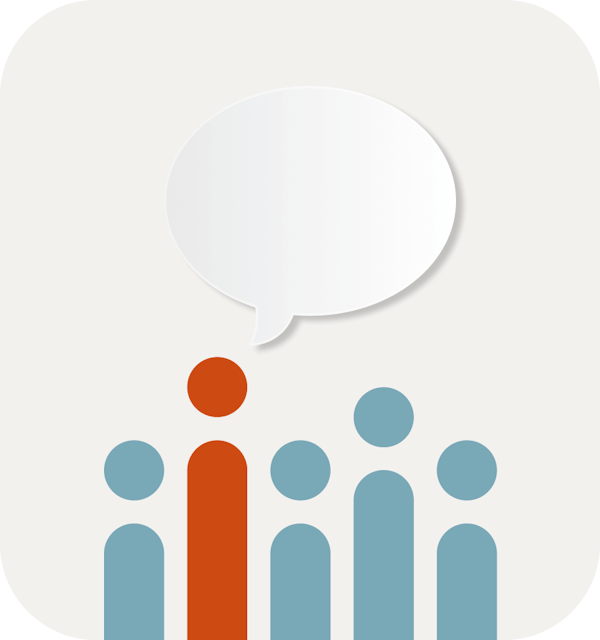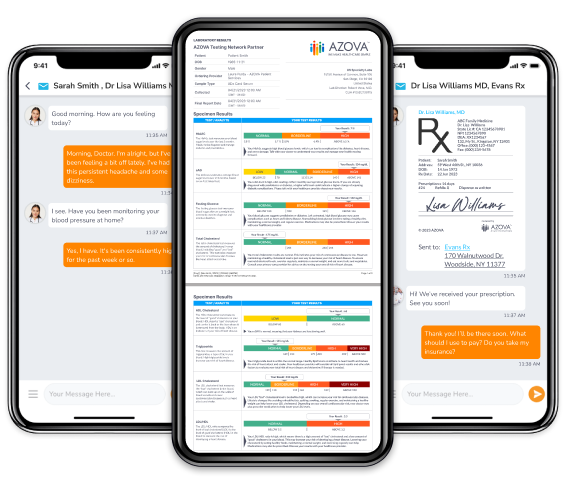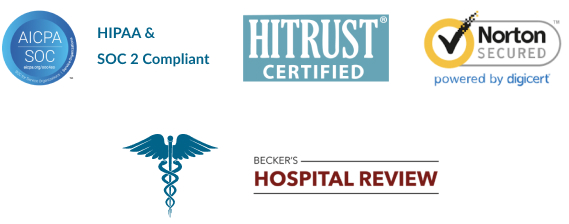Reliable acute stress disorder (ASD) treatment, just a click away.
Connect with a board-certified healthcare provider for acute stress disorder (ASD) relief via a quick, secured video visit or messaging. Receive a diagnosis and treatment plan, all without leaving home.
Therapy services are available for adults and children of all ages in all 50 states. Psychiatry services are available for adults 18+ in all 50 states and for children 12+ in location where available.

Understanding acute stress disorder (ASD)1-4
Acute stress disorder (ASD) is a mental health condition that can develop within one month of a traumatic event. It involves intense emotional, cognitive, and behavioral reactions, often characterized by flashbacks, nightmares, avoidance, and difficulty functioning. While ASD is often temporary, it can sometimes be a precursor to post-traumatic stress disorder (PTSD).
- ASD symptoms in adults
- ASD symptoms in children
- ASD causes in adults and children
- ASD treatments for adults
- ASD treatments for children
ASD symptoms in adults1-4
- Intrusive memories: Adults with ASD may experience vivid flashbacks, recurring nightmares, and persistent distressing thoughts related to the traumatic event.
- Avoidance: Adults with ASD may avoid reminders of the trauma, such as people, places, or activities, to cope with distressing emotions.
- Dissociative symptoms: This may be characterized by feeling detached from oneself or the environment, experiencing derealization or depersonalization, and having difficulty remembering aspects of the traumatic event.
- Anxiety or increased arousal: Adults with ASD may experience increased irritability, difficulty concentrating, sleep problems, hypervigilance, and exaggerated startle responses.
- Distress: Distress in adults with ASD can manifest as overwhelming anxiety, depression, difficulty coping, and impaired functioning in various areas of life.
If you experience these symptoms for more than a month and they significantly interfere with your daily life, it’s important to seek professional help.
ASD symptoms in children1, 5
Children with ASD may exhibit a range of symptoms, including:
- Intrusive memories: Flashbacks, nightmares, and recurrent distressing thoughts about the traumatic event.
- Avoidance: Avoiding reminders of the trauma, such as people, places, or activities.
- Emotional and behavioral changes: Increased anxiety, irritability, anger, social withdrawal, sleep disturbances, and difficulty concentrating.
- Somatic symptoms: Physical complaints like stomach aches or headaches.
If your child exhibits these symptoms for over a month, significantly impacting their daily life, it’s crucial to consult with a mental health professional.
ASD causes in adults and children
Acute stress disorder (ASD) is typically triggered by exposure to a traumatic event, which can include:1, 3
- The sudden death of a loved one
- Involvement in an accident
- Physical assault or the threat of serious injury
- Natural disasters
- A life-threatening medical diagnosis
- Sexual or domestic violence
Approximately 6% to 33% of people who experience a traumatic event may develop ASD, with the rate varying based on the nature of the trauma.4
ASD treatments for adults
ASD can be managed through various therapeutic approaches, each tailored to address different aspects of mental health. Here are some common types of treatment:1-4
- Psychotherapy: Trauma-focused cognitive behavioral therapy (CBT) is the recommended first-line treatment, as it has been shown to be effective in reducing symptoms and preventing the development of PTSD.
- Pharmacotherapy: Antidepressants, particularly SSRIs, can be helpful for managing associated symptoms, like depression and anxiety. While there is limited evidence for the effectiveness of medications specifically for ASD, they can be beneficial for addressing comorbid conditions.
AZOVA’s Behavioral Health services offer a private and confidential platform for individuals struggling with ASD. Connect with a professional healthcare provider online to discuss your experiences and develop a personalized treatment plan tailored to your unique needs.
ASD treatments for children
Treatment for ASD in children often involves a multi-faceted approach. A variety of therapeutic techniques and medications may be considered to address the unique needs of each child. These include:6
- Psychotherapy: Various therapeutic approaches, such as supportive psychotherapy and trauma-focused therapy, can help children manage distressing thoughts and behaviors associated with trauma.
- Medication: Selective serotonin reuptake inhibitors (SSRIs) may be beneficial for children with comorbid anxiety or depression.
AZOVA’s Behavioral Health services offer convenient and confidential access to mental health professionals for your child. Through secure video calls or messaging, you can discuss your child’s concerns and develop a personalized treatment plan tailored to their individual needs. This can be a valuable resource for timely support and guidance.
Don’t suffer through the weight of trauma. Get treatment for acute stress disorder (ASD) today.
References
1World Health Organization. (n.d.). Sinusitis (acute and chronic). [WHO Library Cataloguing – WER]. https://applications.emro.who.int/docs/WHOEMMNH237E-eng.pdf?ua=1\
2Fanai, M., & Khan, M. A. B. (2023, July 10). Acute stress disorder. In StatPearls [Internet]. Treasure Island (FL): StatPearls Publishing. https://www.ncbi.nlm.nih.gov/books/NBK560815/
3Kivi, R., Crooks, F., & Legg, T. J. (2018, September 29). Acute stress disorder. Healthline. https://www.healthline.com/health/acute-stress-disorder#risk-factors
4National Center for PTSD. (n.d.). Acute stress disorder. Veterans Affairs. https://www.ptsd.va.gov/professional/treat/essentials/acute_stress_disorder.asp
5Child Mind Institute. (last reviewed on 2023, December 12). Acute stress disorder in children: A quick guide. https://childmind.org/guide/quick-guide-to-acute-stress-disorder/
6American Academy of Pediatrics [AAP]. (revised 2023, May). Acute and posttraumatic stress disorders in children and adolescents. MSD Manuals Professional Edition. Retrieved from https://www.msdmanuals.com/professional/pediatrics/psychiatric-disorders-in-children-and-adolescents/acute-and-posttraumatic-stress-disorders-asd-and-ptsd-in-children-and-adolescents
Need help or have questions?
Contact our AZOVA Customer Support team below
Live 24/7 chat
(quickest response)
You can chat with AZOVA’s Customer Support team for comprehensive support, including help with your account, testing, shipping, and results.
We typically respond within 5 minutes. Click the messaging icon on the lower right corner of the page to get started.



